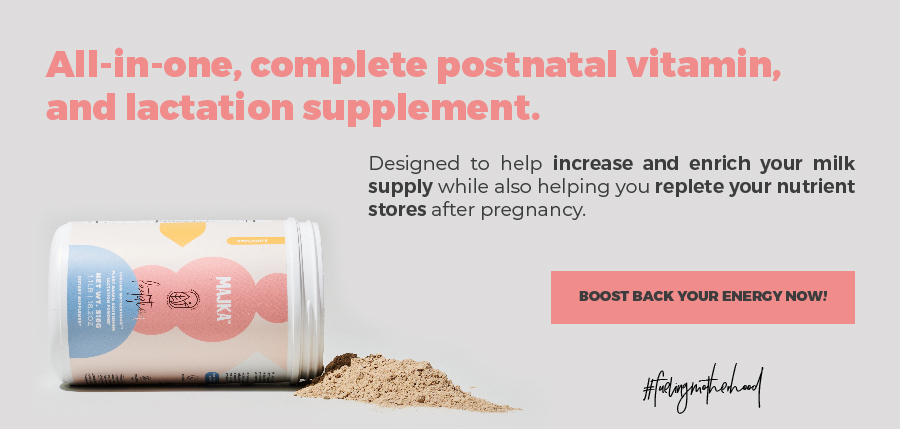
One of the many great things about breastfeeding is that it doesn’t only imply a healthy feeding for your baby, but it also has an impact on your mental health.
In the following, we will talk about the relationship between breastfeeding and anxiety, regarding risks, treatment and ways to maintain a healthy feeding bond with your baby.
Can breastfeeding hormones cause anxiety?
The short answer to this is no. Breastfeeding hormones do not cause anxiety, on the contrary, they promote maternal bonding by releasing oxytocin; breastfeeding also reduces the cortisol response to stress which is in many times, a risk factor for developing anxiety.
Breastfeeding moms have even reported less anxiety and increased calm compared to formula feeding moms (with this we are not in any way claiming that formula feeding creates anxiety).
On another site, there is an on study condition called Dysphoric Milk Ejection Reflex (D-MER) which is an abrupt emotional “drop” that can happen before your milk releases and last for a few minutes. This emotional “drop” can involve feelings of anger, irritability, hopelessness and self-loading, among others.
Although this condition has not been studied for long, some results have suggested that an abrupt drop in dopamine may occur when your milk release is triggered, resulting in a relatively brief dopamine deficit for affected moms.
D-MER is more of a physiological condition than a psychological one, and although there isn’t medication for it yet, knowing what is going on and that it will only last a few minutes could help you to cope with it.
Can I take anxiety medication while breastfeeding?
Common anxiety medications such as Zoloft and Paxil, appear to be safe while breastfeeding; the known risks or adverse effects are minimal, and only include instances of colic in babies.
Although the good news is that there are many medications that do not harm the process of breastfeeding your baby, since most of them have little of no effect on your milk supply nor on your baby’s health; it is crucial to always talk to your doctor before using any medications to protect yourself and your baby’s health.
What helps with anxiety while breastfeeding?
As we mentioned before, breastfeeding hormones by itself do not necessarily cause anxiety and it can even lower the risk of experiencing it. Even so, breastfeeding isn’t only a physiological process as it is also a psychological one.
If you experience difficult challenges or discordance between your expectations and your breastfeeding experience you can have a negative mental health outcome such as anxiety; which does not mean that you are doing anything wrong, keep in mind that a postpartum period brings a whole lot of changes and it is normal to feel overwhelmed or uncomfortable about it.
Breastfeeding cessation may cause higher levels of anxiety in some moms because of the expectations that they had about how long it was gonna last or by the social pressure they may feel about maintaining breastfeeding, remember that you can always get the support of your love ones and/or professional help if you are not feeling your best.
How to stop being anxious while breastfeeding
- Avoid overwhelming: Nowadays there are many sources of information regarding breastfeeding and raisingracing a baby, and even as this can be a great help in many ways; it can also represent a big load of pressure on some people; constantly reading and hearing about what you should or shouldn’t do while learning to breastfeed could be overwhelming and increase your anxiety levels.
- Follow what makes you comfortable: First of all, it’s important to be kind to yourself and to get only the help that you feel comfortable with. It is ok to ask people to let you have your own process and decisions, you do not need to get constant advice or to believe that what others think is a rule that you have to follow.
- Get the help you need: keep in mind that you’re not the only one on the job, even if you are breastfeeding exclusively it doesn’t mean that your partner can’t help around. Getting all the help that you need from your partner and from the people around you that make you feel comfortable may reduce your anxiety levels.
- Sleep as much as you can: lack of sleep can result in higher levels of anxiety. It is normal to sleep less while taking care of a baby, but whenever you are able to, don´t forget to get some rest!
- Maintain healthy habits: small things such as a healthy diet, a good hydration, doing some exercise (if the doctor tells you its ok), a bit of sun exposure and doing activities that you like; are each a great way of maintaining a good mental health and to enjoy the journey of breastfeeding,
In Breastfeeding 101 we want you to keep in mind that if you are experiencing anxiety there are many ways that you can feel better, and that if for any reason you decide not to breastfeed there are great alternatives to keeping your baby healthy.
We hope this information has helped you to learn more about the relationship between anxiety and breastfeeding and we invite you to follow all of our content to learn more about your family’s health.
In the following we share with you some of the sources that made this article possible in case you would like to deepen more on this topic:
- Breastfeeding and psychiatric medications I MGN Center
- Breastfeeding associated with improved maternal mental health outcomes I NEWs Medical Life Science
- Breastfeeding cessation and symptoms of anxiety and depression: a longitudinal cohort study I BMC
- Dysphoric milk ejection reflex: A case report I National Library of Medicine
- Impact of Maternal Anxiety on Breastfeeding Outcomes: A Systematic Review I PubMed Central
- Maternal Anxiety and Breastfeeding: Findings from the MAVAN (Maternal Adversity, Vulnerability and Neurodevelopment) Study I Sage Journals
- Postpartum Anxiety, Breastfeeding Self-Efficacy & Breastfeeding Outcomes I Oxford Academic
- Prenatal anxiety, breastfeeding and child growth and puberty: linking evolutionary models with human cohort studies I Taylor and Francis
- Taking Anxiety Medications During Breastfeeding: What You Need to Know I The Recovery Village
- The Effects of Breastfeeding on Maternal Mental Health: A Systematic Review I Mary Ann Liebert Inc
Annie Rueb






